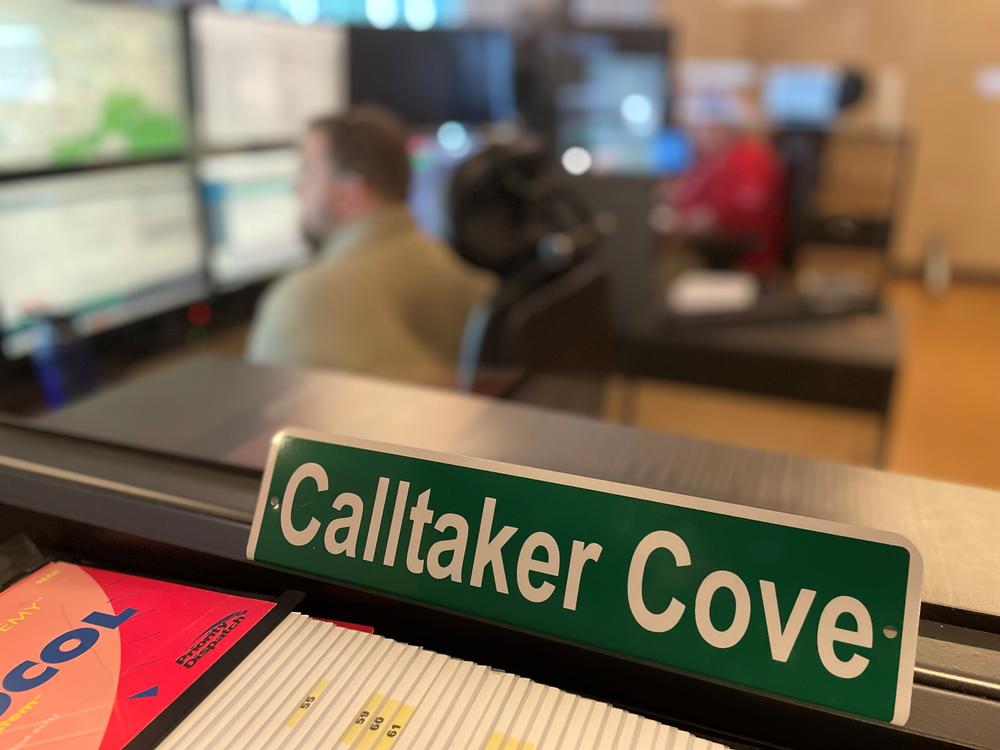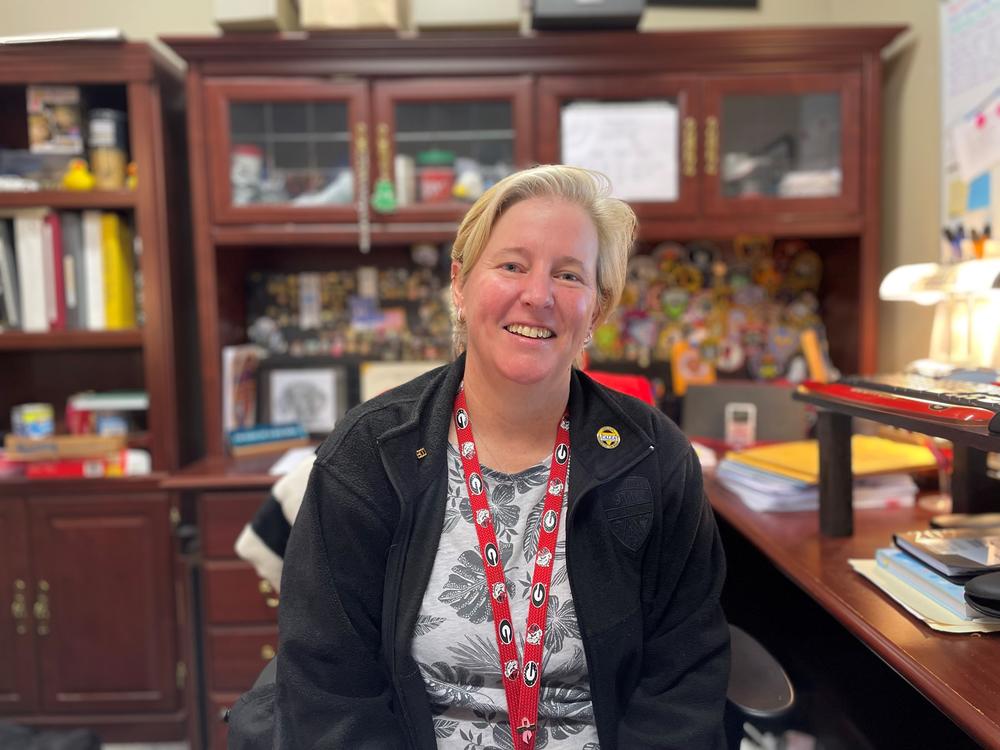
Caption
A sign reads "calltaker cove" inside the Cobb County 911 call center. With the nationwide July 2022 launch of the new 988 number for mental health and addiction crisis calls, the workload here could double.
Credit: Ellen Eldridge / GPB News


